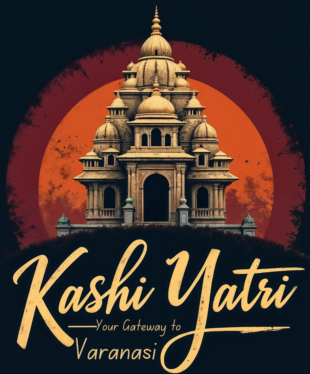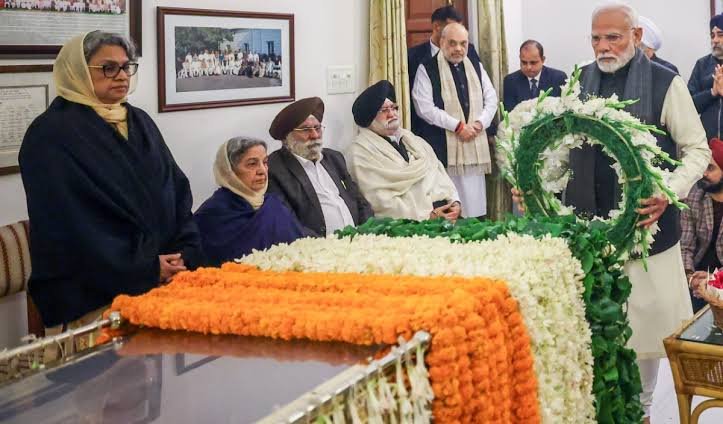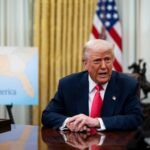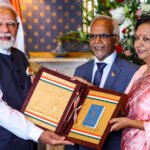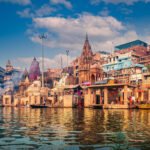As India gets ready for the final rites of former Prime Minister Dr. Manmohan Singh, the journey of a visionary leader comes to an end.
Overview
An internationally renowned economist and India’s thirteenth prime minister, Dr. Manmohan Singh, made a lasting impact on the country’s socioeconomic climate. Known as the “architect of India’s economic reforms,” he led the Congress-led UPA government from 2004 to 2014 for two consecutive terms as prime minister. India is in mourning for the loss of a statesman, scholar, and reformer who passed away at the age of 92. We explore Dr. Singh’s life, legacy, and the events that shaped his remarkable career as the country comes together to pay its final respects.
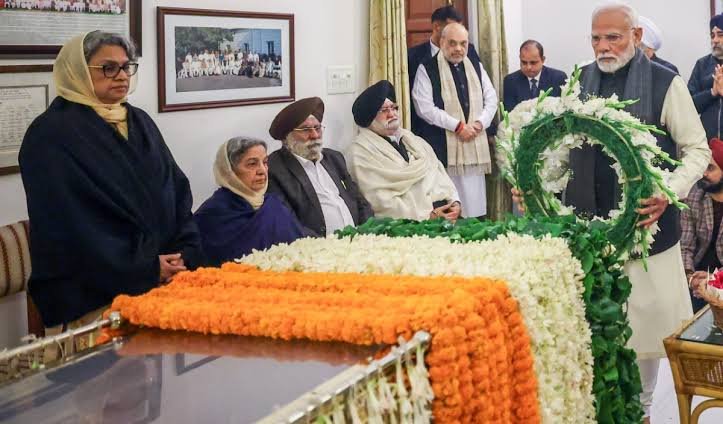
Childhood and Schooling
Dr. Manmohan Singh was born in Gah, which is now in Pakistan, on September 26, 1932, and witnessed the turmoil of partition firsthand. His academic prowess was evident from an early age despite these obstacles. Dr. Singh distinguished himself with his commitment and intelligence, excelling in his studies. He placed first in his class when he finished his undergraduate studies at Punjab University.
He continued his education at the University of Cambridge, where he graduated in 1957 with a First Class Honours degree in Economics. Dr. Singh’s education continued, and in 1962 he earned a doctorate in economics from Nuffield College in Oxford. His dissertation on “India’s export trends and prospects for self-sustained growth” was a landmark study that demonstrated his profound comprehension of the economic difficulties that developing countries face.
Dr. Singh’s strong academic background equipped him for a career addressing some of the most difficult economic and policy issues facing India. He was able to approach issues with a balanced viewpoint, fusing theoretical understanding with real-world solutions, thanks to his rigorous academic background and exposure to other countries.
The Economic Reforms Architect
India’s economic history underwent a sea change during Dr. Manmohan Singh 1991–1996 term as Finance Minister under Prime Minister P.V. Narasimha Rao. When India was experiencing a serious balance-of-payments crisis, Dr. Singh led the reforms that made the nation a major player in the world economy. The India of today, a country with booming industries, innovation, and a growing middle class, was made possible by his policies.
The 1991 Challenges:
In 1991, India’s economy was in terrible shape. Reserves of foreign currency had dropped to dangerously low levels, hardly enough to pay for imports for a few weeks. The fiscal deficit was unmanageable, and inflation was out of control. To obtain an emergency loan from the International Monetary Fund (IMF), the government was forced to pledge its gold reserves.
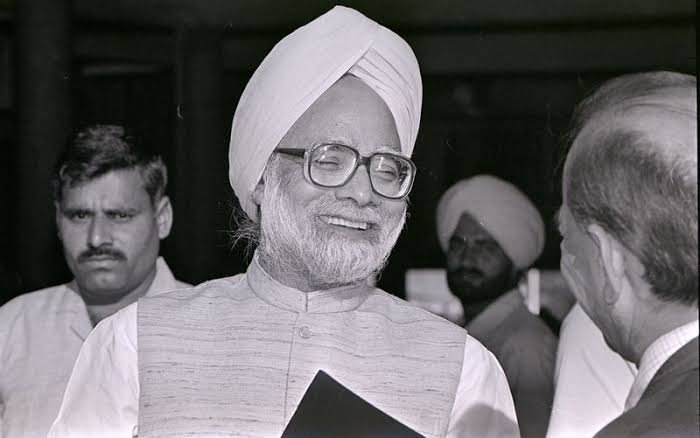
The Reforms:
The reforms proposed by Dr. Manmohan Singh were ambitious and all-encompassing. The license raj, a system that required companies to get multiple permits and clearances, was abolished by him. He unleashed Indian entrepreneurs’ potential by cutting bureaucratic red tape. Important industries like banking, aviation, and telecommunications were made available to both domestic and foreign investors.
Among the reforms were: Trade liberalization: Lower import quotas and tariffs.
The process of disinvesting in public sector businesses is known as privatization.
Globalization: Allowing foreign direct investment (FDI) into the economy.
Modernizing the banking industry and enhancing fiscal restraint are two examples of financial reforms.
In addition to preventing an economic meltdown, these actions put India on a course for long-term prosperity. Millions of people were lifted out of poverty and India became a major player on the world stage as a result of the economy’s average growth of over 6% over the following 20 years.
The Tenure of Prime Minister
In 2004, Dr. Manmohan Singh led the United Progressive Alliance (UPA) government and was appointed Prime Minister of India. His term was characterized by both historic successes and formidable obstacles. Dr. Manmohan Singh was a scholarly and soft-spoken leader whose governance style was defined by reaching consensus and emphasizing long-term growth.
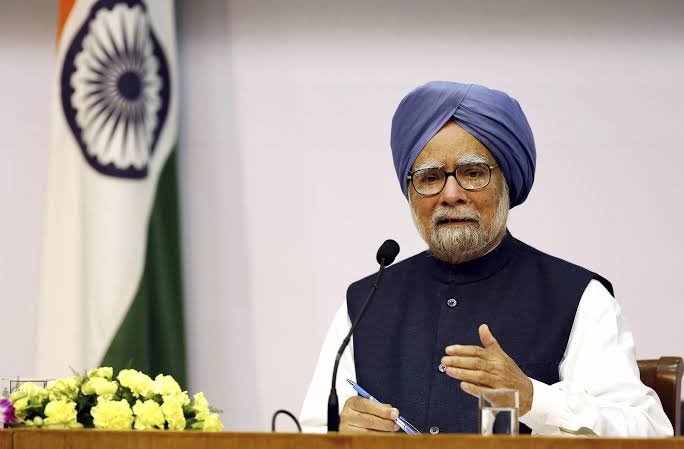
Economic Development and Growth:
Under his leadership, India’s economy grew rapidly. With GDP growth rates regularly surpassing 8%, India became one of the world’s fastest-growing economies. Significant investments were also made in healthcare, education, and infrastructure during this time.
Flagship Welfare Schemes: To combat poverty and advance social justice, Dr. Manmohan Singh’s administration implemented a number of welfare programs, including:
The Mahatma Gandhi National Rural Employment Guarantee Act (MGNREGA) provides rural households with 100 days of employment. The Right to Education Act ensures that children aged 6 to 14 receive free and compulsory education.
Two-thirds of India’s population will receive subsidized food grains thanks to the Food Security Act.
Notable accomplishments in foreign policy:
Dr. Singh’s diplomatic skills improved India’s reputation around the world. A pillar of his foreign policy was the 2008 India-US Civil Nuclear. Through this agreement, India was able to access nuclear technology and fuel from global markets, ending decades of nuclear isolation. Additionally, it was a major development in India’s strategic alliance with the US.
Difficulties and Debates:
Dr. Manmohan Singh’s tenure was not without controversy, despite these accomplishments. His government’s reputation was damaged by corruption scandals like the Commonwealth Games and the distribution of 2G spectrum. Critics also charged that he relied too much on Congress President Sonia Gandhi to make political choices. His honesty and integrity, however, were unquestioned.
A Respected and Modest Statesman
In the frequently hostile realm of Indian politics, Dr. Manmohan Singh stands out for his integrity and humility. He was renowned for his composed manner and unwavering attention to India’s development. His sincerity and depth of thought were admired even by his critics.
“History will be kinder to me than the contemporary media,” one of his most well-known statements, captures his conviction about the long-term effects of his policies. This sentiment is still very relevant today as the country considers his contributions.
Memorials from Around the World
Leaders from all over the world expressed their sorrow and paid tribute to Dr. Manmohan Singh after his death. US Secretary of State Antony Blinken referred to him as a “visionary leader who transformed India’s economic landscape,” while French President Emmanuel Macron commended his contribution to fortifying Indo-French ties. Both Malaysian Prime Minister Anwar Ibrahim and former Canadian Prime Minister Stephen Harper offered their condolences, emphasizing his contributions to the diplomatic and economic spheres on a worldwide scale.
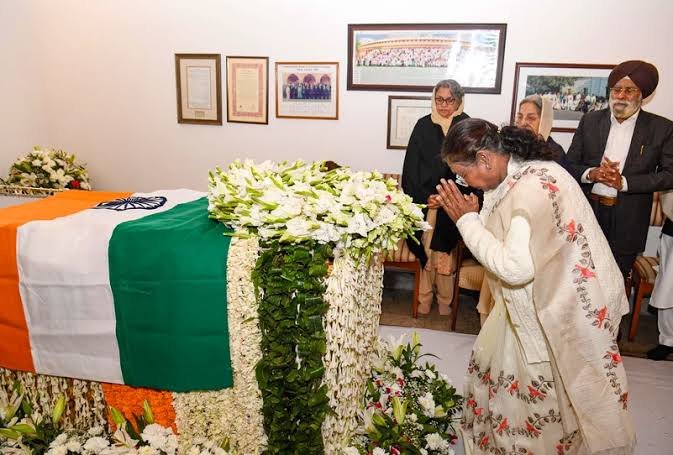
Dr. Manmohan Singh was acknowledged by world leaders as a global thought leader whose policies and vision transcended national borders, in addition to being an Indian statesman.
The Last Trip
At Delhi’s Nigambodh Ghat, Dr. Manmohan Singh’s final ceremonies are being conducted with full state honors. Leaders from all political parties, including Prime Minister Narendra Modi, Rahul Gandhi, and Sonia Gandhi, attend the solemn ceremony. Across social and political divides, he was highly respected, as evidenced by the seven-day state mourning.
Ceremony Details: – Party leaders paid their final respects to the body after it was first brought to the Congress headquarters.
- The body was then taken to Nigambodh Ghat in a procession.
- To say goodbye for the last time, thousands of admirers and well-wishers lined the streets.
Memorial Controversy
A political debate has been triggered by the Congress party’s request for a memorial at the location of Dr. Singh’s cremation. In a letter to Prime Minister Modi, Congress President Mallikarjun Kharge stressed the custom of erecting monuments in honor of former prime ministers. BJP leaders, however, drew attention to the fact that P.V. Narasimha Rao did not receive a comparable gesture while the Congress was in power.
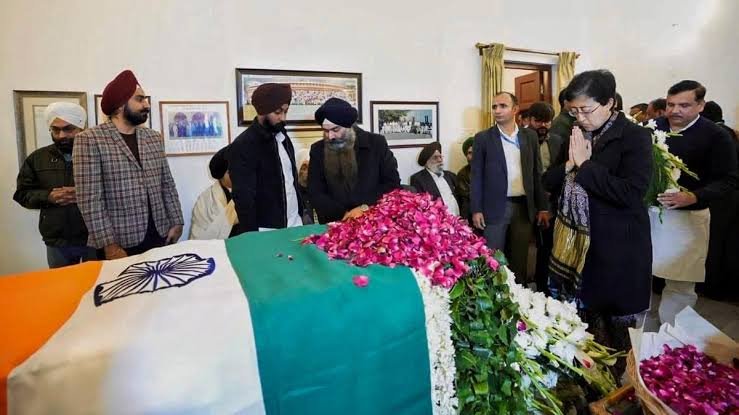
The Center has made it clear that it will set aside space for a memorial, but it has also underlined the importance of following the correct procedures. The political dynamics surrounding leaders’ legacies have been brought to light by this controversy.
An Enduring Legacy
The impact of Dr. Manmohan Singh goes beyond his political accomplishments. He was a living example of intellectual rigor, humility, and dedication. His life’s work serves as a reminder that vision and service, not power, are what make a leader.
Primary Elements of His Legacy:
1. Economic Revolution: His reforms made it possible for India to become a major economic force in the world.
- Diplomatic Relations: Closer connections with powerful nations around the world.
- Social Equity: Started welfare programs that helped millions of people.
- Intellectual Leadership: Promoted a scientific temper and evidence-based policymaking.
Public Responses
People all throughout India have expressed their admiration and sorrow for Dr. Manmohan Singh. There are a ton of tributes, stories, and thoughts about his contributions on social media. The collective sense of loss has been highlighted by trending hashtags like #ManmohanSingh and #NationMourns.
Recalling the Man Who Led the Way
In addition to his accomplishments in his career, Dr. Manmohan Singh was a mentor to many and a loving family man. Both coworkers and citizens admired him for his straightforwardness and approachability. He maintained his groundedness and accessibility even though he held the highest positions in the country.
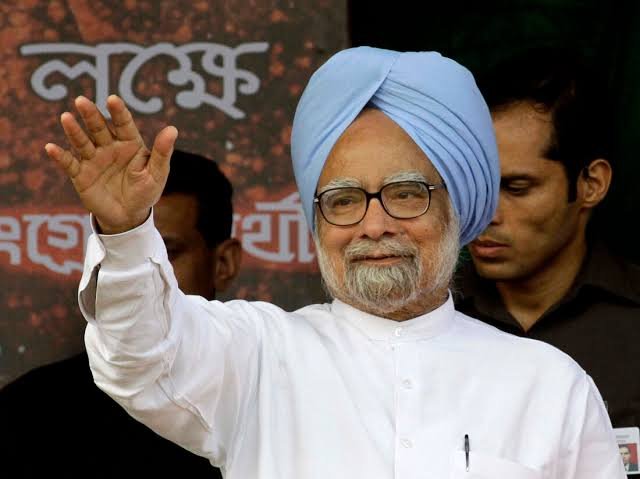
Personal Interests: – A connoisseur of classical literature and music – Well-known for his disciplined lifestyle and exacting work ethic.
He was adored because of his capacity to relate to people from all walks of life. He was a statesman who listened, learned, and led with compassion, according to one admirer.
